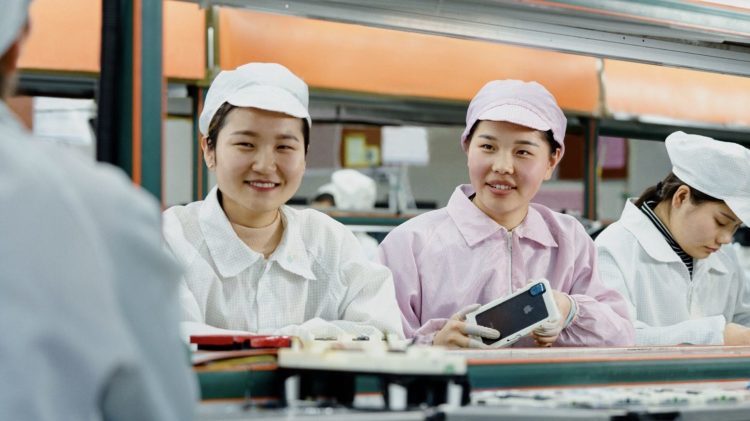Though Apple designs its own products, it leaves both component supply and final assembly to third-party suppliers — companies that collectively employ armies to serve Apple’s needs. Since those companies aren’t always compliant with local laws or Apple’s own standards of conduct, Apple produces an annual guide to their performance, called the Supplier Responsibility Progress Report. While the just-released 2019 report suggests that Apple’s suppliers continue to improve, some previously identified workforce labor and health issues remain.
Apple says that it performed 770 supplier assessments in 2018, and the report outlines some of the issues identified in their facilities. Out of a maximum possible assessment score of 100, Apple said the average labor and human rights score across suppliers was 89, most notably finding violations in working hours and wages. There were 24 discovered cases of falsified working hour data, along with unspecified problems with payment of wages.
The company said that the average health and safety score was 93, the same score as suppliers averaged on compliance with environmental standards. Here, the key issues were in offering health screenings to employees working in hazardous roles, having facilities that were ready to handle emergencies, and properly labeling hazardous substances. But on average, the number of point deductions for incidents were small, while working conditions and waste management appeared to be improving.
Apple historically summarizes positive developments in a press release while leaving the issues to be discovered in the full report, and this year’s highlights aren’t particularly exciting. The company touted increased employee education on workplace rights and skills, as well as “Zero Waste to Landfill” certification for all AirPods, Apple Watch, HomePod, iPad, iPhone, and Mac final assembly sites. It says that its suppliers have diverted a million tons of garbage in the last three years, saved a gallon of water in 2018 for each person on the planet, and cut 466,000 metric tons of greenhouse gas emissions.
June 5th: The AI Audit in NYC
Join us next week in NYC to engage with top executive leaders, delving into strategies for auditing AI models to ensure fairness, optimal performance, and ethical compliance across diverse organizations. Secure your attendance for this exclusive invite-only event.
Within the report, the key theme was “raising the bar.” Apple says that it’s requiring suppliers to provide protections for new mothers and high risk-tasked subcontractors, cut their factories’ use of resources, and reduce emissions. It also laid out its processes for punishing violations, including the prospect of removing companies from the supply chain for “core violations” — something it says it has done 20 times in total, including seven smelters and refiners in 2018 alone. But most suppliers are placed on probation and given opportunities to correct their issues.
The full 66-page 2019 Apple report is available here, if you’re interested in doing a deeper dive into the details. However, Apple’s report isn’t the only or definitive word on its suppliers’ activities. A human rights watchdog group called China Labor Watch has been highly critical of the company’s key contractors Foxconn and Pegatron for years, noting everything from unpaid overtime labor to dangerous conditions in their plants. Apple has maintained that it holds its suppliers to the industry’s highest standards, and that even if there are still problems, it’s actively working to correct them.
China Labor Watch’s most recent report on an Apple supplier focuses on Catcher, which it says continued to operate hazardous plants despite worker injuries and industrial pollution. Last July, the organization called on Tim Cook to address longstanding issues at Jabil Green Point, another Apple supplier, which it says has spent years in violation of both local laws and Apple standards, with no response from the company.


